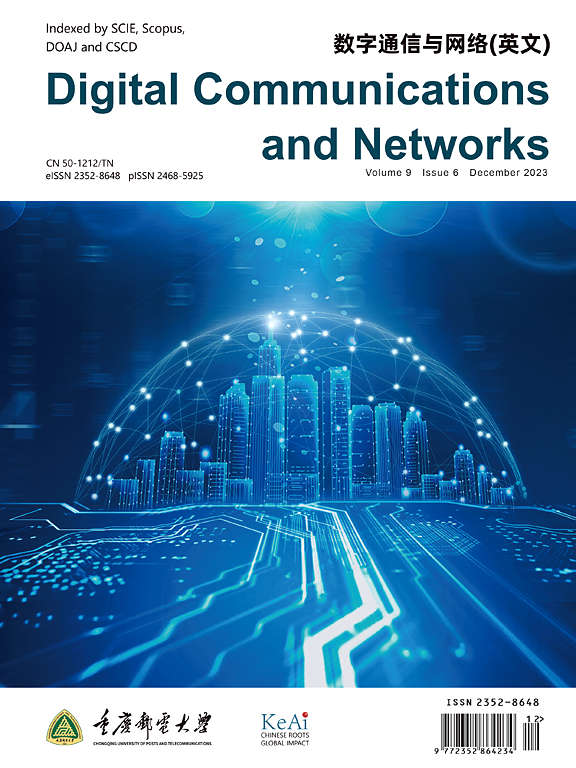计算能力网络中高效节能联合学习的博弈激励机制
IF 7.5
2区 计算机科学
Q1 TELECOMMUNICATIONS
引用次数: 0
摘要
计算能力网络(CPN)正在成为超5G (B5G)或6G的重要研究方向之一。本文构建了一个基于联邦学习(FL)的CPN,其中所有多访问边缘计算(MEC)服务器通过无线链路连接到计算能力中心。通过这个FL程序,CPN中的每个MEC服务器都可以使用本地化的数据独立训练学习模型,从而保护了数据的隐私。然而,激励MEC服务器以有效的方式参与FL过程是具有挑战性的,并且难以确保MEC服务器的能源效率。为了解决这些问题,我们首先使用Stackelberg游戏框架引入一种激励机制来激励MEC服务器。然后,我们制定了一种综合算法,在保证每个MEC服务器训练的局部准确性的同时,共同优化通信资源(无线带宽和传输功率)分配和计算资源(MEC服务器的计算能力)分配。数值数据验证了所提出的激励机制和联合优化算法确实提高了所考虑的CPN的能效和性能。本文章由计算机程序翻译,如有差异,请以英文原文为准。
A game incentive mechanism for energy efficient federated learning in computing power networks
Computing Power Network (CPN) is emerging as one of the important research interests in beyond 5G (B5G) or 6G. This paper constructs a CPN based on Federated Learning (FL), where all Multi-access Edge Computing (MEC) servers are linked to a computing power center via wireless links. Through this FL procedure, each MEC server in CPN can independently train the learning models using localized data, thus preserving data privacy. However, it is challenging to motivate MEC servers to participate in the FL process in an efficient way and difficult to ensure energy efficiency for MEC servers. To address these issues, we first introduce an incentive mechanism using the Stackelberg game framework to motivate MEC servers. Afterwards, we formulate a comprehensive algorithm to jointly optimize the communication resource (wireless bandwidth and transmission power) allocations and the computation resource (computation capacity of MEC servers) allocations while ensuring the local accuracy of the training of each MEC server. The numerical data validates that the proposed incentive mechanism and joint optimization algorithm do improve the energy efficiency and performance of the considered CPN.
求助全文
通过发布文献求助,成功后即可免费获取论文全文。
去求助
来源期刊

Digital Communications and Networks
Computer Science-Hardware and Architecture
CiteScore
12.80
自引率
5.10%
发文量
915
审稿时长
30 weeks
期刊介绍:
Digital Communications and Networks is a prestigious journal that emphasizes on communication systems and networks. We publish only top-notch original articles and authoritative reviews, which undergo rigorous peer-review. We are proud to announce that all our articles are fully Open Access and can be accessed on ScienceDirect. Our journal is recognized and indexed by eminent databases such as the Science Citation Index Expanded (SCIE) and Scopus.
In addition to regular articles, we may also consider exceptional conference papers that have been significantly expanded. Furthermore, we periodically release special issues that focus on specific aspects of the field.
In conclusion, Digital Communications and Networks is a leading journal that guarantees exceptional quality and accessibility for researchers and scholars in the field of communication systems and networks.
 求助内容:
求助内容: 应助结果提醒方式:
应助结果提醒方式:


